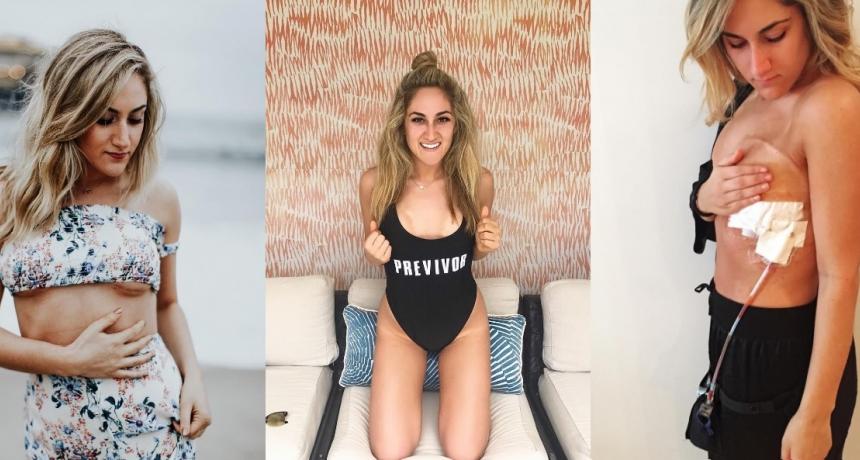10 Things To Know If You’re Having A Mental Health Crisis
Knowing what to do can be hard, but doing nothing isn’t the answer.
Whether you’re currently in a crisis or dealing with an escalating mental health issue, seeking out help can be anxiety-inducing — especially if you’ve heard some horror stories.
News investigated America’s largest psychiatric chain, Universal Health Services (UHS), and how some current and former employees at 10 UHS facilities said they were under pressure to admit and hold patients until their insurance payments ran out — which sometimes meant exaggerating people’s symptoms or twisting their words to make them seem suicidal. UHS strongly disputes these allegations and has said they offer all patients high-quality care.
So if you’re someone who has been thinking about seeking help for the first time, reading something like that might really, really freak you out.
Which, understandable. For many, there’s already a stigma associated with mental health services, but that shouldn’t discourage you from finding help when you truly need it. When you’re dealing with a mental health issue, seeing a professional is crucial — and it can be a positive experience if you know the right way to find support.
1. First, it can be hard to know when you need to see someone, but it’s time to reach out if…
Your safety or the safety of others is in question. This means if you think you might hurt yourself or someone else — but also, if you’re not sure if you will and don’t know whether you need help or not, says Parekh: “It’s that gray in-between space when people most need to seek help and contact someone who has been trained to make those complex decisions.”
You recognize signs from previous episodes or crises. If you have a history of dealing with and managing a disorder, you have probably learned signs or symptoms that usually lead up to a relapse, says Duckworth. Symptom episodes usually follow patterns, so getting help quickly can help manage the outcome. Usually in this case, you and whatever professional you’re working with will have developed a plan for times like this, but if not, these tips can still apply.
Your symptoms are getting in the away of your ability to function. “Fundamentally, what you’re trying to figure out is, ‘Is what I’m dealing with beyond my capacity to handle alone?’” says Bufka.
2. If you’re feeling vulnerable, scared, or not sure where to begin, calling 911 or a 24-hour hotline is a great first step.
The idea of calling 911 for something other than a very obvious life-or-death emergency might seem weird, but it’s actually an important resource if you’re not sure where to start and you feel like you need help now — especially because mental health has the potential to spiral quickly, so bringing in a professional just in case is always the safest route.
“Calling 911 doesn’t mean that someone’s going to swoop in and take you away,” says Parekh. The person on the other end of the line will just work with you to figure out what your situation calls for. That might mean further redirection or intervention, but for a lot of people, you might come to a solution together, like deciding that you’ll call your primary care doctor in the morning. You might even find the conversation therapeutic and a solution in and of itself.
3. If nothing else, at least call a loved one who will be able to connect you with help.
The thing is, if you’re in a situation where you need help, you might not be in a position where you want to call 911 or a hotline, or walk into an ER. If that’s the case, Parekh suggests contacting a friend or family member. Again, the goal is to connect with someone who will then open up lines of communication between you and the help you need.
FYI, now is a good time to mention that bystanders can be the ones best equipped to initiate seeking treatment, so if you’re reading this to get more information about helping a loved one, don’t hesitate to assist them in accessing these resources.
4. If you’re not in immediate crisis, your primary care doctor is the most recommended first step.
All the experts BuzzFeed Health spoke to agreed that you shouldn’t underestimate the importance of your primary care doctor: They know your history and can speak to important changes in your health or behavior (yes, even if you see them only once a year). They have an incredible network, and it’s their job to accumulate information and get consultations to do what’s best for you. They’re someone you can go to who you trust, someone who’s going to be caring — ultimately, the perfect person to have on the frontline triaging and navigating the next steps for you, says Parekh.
You don’t even have to make an appointment with them — if your situation feels more immediate, call their office and say, “I’m a patient of so-and-so’s. This is what’s happening, what do you think I should do?” — which might mean making an appointment or utilizing another resource the office suggests.
5. But if you don’t have a doctor, or if you decide to do a walk-in somewhere to seek help or assessment, do research ahead of time if you can. Or at the very least, consider bringing a trusted friend or family member with you.
Let’s say you decide to walk into a mental health service provider because you saw a sign on the bus advertising free mental health assessments there. While that’s not necessarily a bad thing, a little research could help, says Bufka.
Look it up online: If it’s an organization, is it accredited? If it’s an individual, is this person properly licensed in the state that you’re in? If it’s a psychiatric hospital, can you check online reviews or ask friends/family/current providers if they’re familiar with it?
As for having someone there with you, it can never hurt to have another advocate for you in a crisis in an unfamiliar place, says Bufka.
6. Once you’re there, make sure to read any paperwork you sign, and ask someone to explain to you anything you don’t understand.
According to Bufka, signing a form might mean consenting to being kept overnight for observation or hospitalized if, during the course of the intake, there are concerns raised about your health or safety. Even though it’s more likely that you’ll be free to leave on your own terms, you should be aware of the possibility so you can make an informed decision.
Btw, it’s important to keep in mind that being kept for observation is not a bad thing. Stigma may have led you to believe that it’s the worst-case scenario and reserved only for very extreme cases, but sometimes a physician just needs to gather more information to be safe, since your mental health can change in a short period of time, says Parekh.
7. If at any point you feel unsafe or taken advantage of during a mental health assessment or after you’ve been admitted, don’t hesitate to express your concern and ask for more information.
Bufka wants you to know that stories of people being held at the hospital against their will —investigated, when even police intervention proved to be no help — are extremely rare. “Typically it is very difficult to hospitalize someone who is not an imminent threat to self or others,” she says.
But if you do wind up in a situation where you feel unsafe or aren’t receiving care that seems appropriate to your situation, Bufka has the following recommendations: “Do your best to remain calm and clear, explain your concern, and attempt to resolve it.” If needed, ask to speak to a supervisor or licensed provider for more information. You can also ask to speak with your emergency contact, who might be able to step in and help.
Also, once removed from the situation, she suggests considering registering a complaint with the oversight body (such as your state health agency, Centers for Medicare and Medicaid Services, or the Joint Commission).
8. It can be very helpful, if you have the bandwidth and aren’t currently in a crisis, to come up with a crisis prevention plan for the future.
“Many psychiatric vulnerabilities can be long-term or recurring, so the goal after that first moment of treatment is to create for yourself a network of professional helpers who will be there in case you have another flare-up or crisis in the future,” says Duckworth.
A crisis plan can determine steps to take to prevent a crisis and to handle a crisis once it’s developed.
9. For good measure, here are a few more options and resources to be aware of:
- Call your insurance provider. They will be able to tell you how to pursue treatment, whether that’s through finding an in-network therapist or specialist you can see or helping you navigate out-of-network options.
- The NAMI HelpLinecan help you with anything under the mental health umbrella short of a crisis situation, so they’ll be happy to field questions like “Where’s the closest mental health clinic near me?” or “How do I find low-cost treatment?” You can reach them at 1-800-950-NAMI (6264) or email them at info@nami.org.
- See if your job has an Employee Assistance Program (EAP), which can provide you with short-term mental health care, referrals, and financial advice.
- Talk to a leader in your house of worship. They may provide pastoral counseling — aka counseling from a trained minister, rabbi, priest, imam, etc. — or work with you to find help.
10. Remember: The goal is to get you the help you need, and most of the time, the care you receive will reflect that.
“Getting to the ER or making that phone call, all of that can be anxiety-provoking, but knowing that more people than not walk away from that intervention feeling much better is critical to keep in mind,” says Parekh. “The worst mental health service out there is doing nothing. Doing nothing is never a right answer.”


